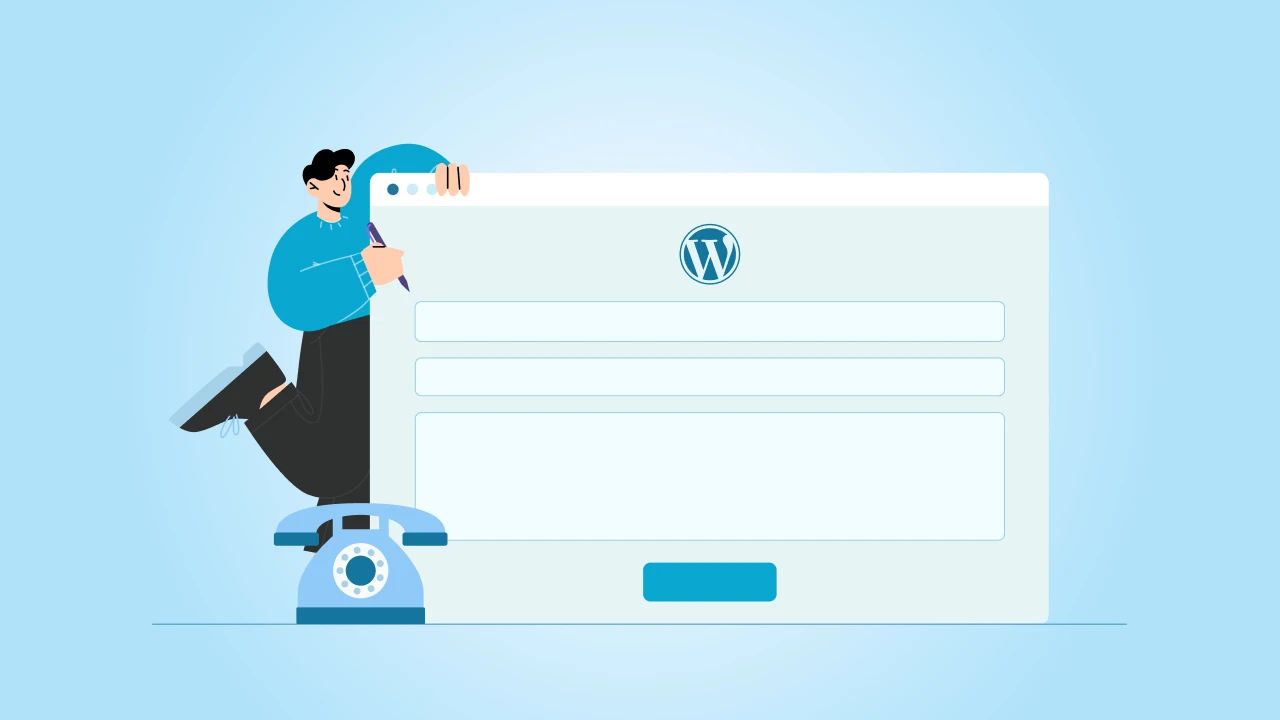So, you are building a website. You have done your homework, and now you are stuck between two big names in the content management system (CMS) world: Joomla and Drupal.
Both are powerful, both are open-source, and both have loyal fan bases.
But here’s the thing—they are not the same. At all.
Joomla is known for its user-friendly interface and flexibility, making it a great choice for small to medium-sized websites.
Drupal, on the other hand, is a powerhouse designed for complex, large-scale projects that require advanced customization and scalability.
The question is, which one aligns with your goals?
If you are new to the CMS game, this decision can feel slightly overwhelming. Don’t worry—that’s why we are here.
In this guide, we will break down the key differences between Joomla and Drupal in plain English. No tech jargon, no fluff. Just the facts you need to make the right choice for your website.
By the end of this post, you will know exactly which CMS is your perfect match.
Ready? Let’s dive in.
⏰ 60-Second Summary
- Joomla is beginner-friendly and ideal for small-to-medium websites with easy setup and moderate customization options.
- Drupal is more suited for complex, large-scale projects, offering advanced customization, scalability, and enhanced security.
- Joomla is perfect for blogs, small businesses, and community sites, while Drupal is preferred for enterprise, government, and multilingual platforms.
- Joomla is easier to use, while Drupal has a steeper learning curve and requires more technical expertise.
- Choose Joomla for smaller projects or budget-friendly solutions, and opt for Drupal if you need advanced features and scalability.
Overview of Joomla and Drupal
Before we dive into the comparison, let’s get familiar with both Joomla and Drupal platforms.
What is Joomla?
Joomla is an open-source CMS that was first released in 2005. It is widely known for its flexibility, ease of use, and balance between simplicity and advanced features. Joomla is a great option for people who want more control over their website’s structure than WordPress offers but without the steep learning curve of Drupal.
Key Features of Joomla:
- User-friendly interface: While not as simple as WordPress, Joomla provides an intuitive dashboard that allows users to manage content, extensions, and site design without extensive technical knowledge.
- Modular system: Joomla allows users to add modules and components to expand the functionality of their websites easily.
- Strong community support: Joomla has an active global community offering support through forums, tutorials, and third-party services.
- Ideal for various types of websites: Joomla is commonly used for business websites, portfolios, online communities, and eCommerce sites.
What is Drupal?
Drupal is a highly flexible and powerful CMS platform that was first released in 2001. Unlike Joomla, which balances usability and flexibility, Drupal prioritizes power and scalability, making it ideal for complex, high-traffic websites.
Key Features of Drupal:
- Highly customizable: Drupal allows developers to create unique websites tailored to specific needs.
- Advanced content management: Drupal has a built-in taxonomy system that makes it easy to categorize and organize content.
- Security-first approach: Drupal is known for its strong security features, which is why it is used by government agencies, large enterprises, and universities.
- Scalability: Drupal is designed to handle complex, large-scale websites with heavy traffic.
Whether you need a custom build, migration, or ongoing support, our experienced developers are here to help.
Joomla vs Drupal: Explore the Main Key Differences
1. Ease of Use and Learning Curve
- The dashboard is less intuitive compared to Joomla or WordPress.
- You need basic programming knowledge (PHP, HTML, CSS) to customize your website properly.
- Unlike Joomla, Drupal doesn’t come with many built-in user-friendly tools, so most features must be configured manually.
Joomla: Beginner-Friendly but Powerful
Joomla strikes a balance between simplicity and complexity. While it’s not as straightforward as WordPress, it’s significantly easier to learn than Drupal. Joomla’s admin panel is well-organized, making it possible for users to create and manage content without coding knowledge.
However, as you start customizing beyond the basic settings, Joomla becomes slightly more complex, requiring some familiarity with its module-based structure.
Drupal: Steep Learning Curve
Drupal is not beginner-friendly. It is designed for developers and experienced users who want complete control over their website’s structure and functionality.
💡 Pro Tips: If you are a beginner, Joomla is easier to learn and manage. If you have technical experience and need a highly customizable CMS platform, Drupal is the better choice.
2. Customization and Flexibility
- It has thousands of extensions and templates to customize your site’s appearance and functionality.
- The module-based system makes it easy to add features like contact forms, galleries, and forums.
- Joomla’s customization capabilities are strong but limited compared to Drupal.
- Drupal’s module system allows you to build completely unique and feature-rich websites.
- It provides more control over user roles, permissions, and content types, making it ideal for large and complex websites.
- However, most customizations require coding, so it’s not as beginner-friendly as Joomla.
Joomla: Balanced Customization
Joomla offers a good balance between usability and customization, making it an excellent choice for users who want to tweak their website’s design and functionality without needing extensive coding knowledge.
Drupal: Full Control and Deep Customization
Drupal has unparalleled customization capabilities, making it the preferred CMS for users who need full control over every aspect of their website. However, this level of customization comes at a cost—it requires more technical expertise.
💡 Pro Tips: If you need moderate customization with ease, Joomla is the way to go. If you need complete control and are comfortable with coding, Drupal is the better option.
3. Performance and Security
- Joomla is fast and responsive, but it requires proper optimization (caching, CDN) for high performance.
- Security is strong, but Joomla websites can be vulnerable to attacks if extensions are not properly maintained.
- Regular updates, strong access controls, and built-in protection against vulnerabilities like SQL injection and XSS.
- Efficient caching, scalable infrastructure, and database optimization allow it to handle large traffic loads seamlessly.
Joomla: Good Performance and Decent Security
Joomla is known for delivering solid performance and reliable security, making it a great choice for small to medium-sized websites. However, like any CMS, it requires proper setup and maintenance to ensure it runs smoothly and stays secure.
Drupal: The Best in Security and Speed
Known for its top-tier security and high-performance capabilities, this CMS is a preferred choice for government agencies, enterprises, and large-scale websites that demand reliability and protection. With robust security protocols and an optimized framework, it ensures seamless performance while safeguarding against potential threats.
💡 Pro Tips: For a standard website, Joomla provides sufficient security. If security is your top concern, Drupal is the safest CMS available.
4. Cost Considerations
- Joomla is more budget-friendly, with lower development and maintenance costs.
- Drupal can be expensive, as hiring a developer is often necessary for customization.
Joomla: More cost-effective
Joomla is generally more budget-friendly, with lower development and maintenance costs. It offers a balance between ease of use and flexibility, allowing users to manage many aspects of their website without requiring extensive technical knowledge. This reduces the need for costly developer assistance.
Drupal: A Little Expensive to Maintain
Drupal, on the other hand, can be significantly more expensive. While the platform itself is free, customization and advanced functionality often require hiring a Drupal developer, as Drupal has a steeper learning curve. Additionally, ongoing maintenance, security updates, and scalability improvements may add to long-term costs. However, for complex, enterprise-level projects, these investments can be worthwhile due to Drupal’s robustness and scalability.
💡 Pro Tips: For affordable website development, Joomla is the better choice. If you have a larger budget and need a powerful system, go with Drupal.
6. SEO and Marketing Capabilities
- Built-in SEO settings for easy optimization
- User-friendly, requiring minimal technical expertise
- Strong support for structured data and complex content organization
- Ideal for large-scale websites requiring fine-tuned SEO strategies
Joomla: Solid SEO Features
Joomla offers a straightforward SEO setup with built-in tools and third-party extensions, making it accessible for small to medium-sized businesses. Users can optimize metadata, URLs, and other key elements without deep technical knowledge, while extensions like sh404SEF enhance SEO performance.
Drupal: Advanced SEO for Large Websites
Drupal is designed for advanced SEO, catering to large websites with complex structures. It provides powerful Drupal modules like Pathauto and Metatag, allowing precise control over URLs, metadata, and structured content for better search engine visibility.
💡 Pro Tips: For basic to moderate SEO, Joomla is great. For complex, large-scale SEO, Drupal excels.
7. Community and Support
- Large, active community with user-friendly forums and guides
- Extensive documentation and third-party tutorials for troubleshooting
- Official Joomla service providers offer paid professional support
- Strong developer-driven community with advanced technical support
- Detailed official documentation and active discussion forums
- Enterprise-level support available through professional agencies
Joomla: Well-established Community
Whether through forums, official documentation, or third-party tutorials. Joomla users benefit from a mix of beginner-friendly and advanced resources, making it accessible for non-technical users and developers alike. Professional support is also available through certified Joomla service providers.
Drupal: Developer-focused Ecosystem
Drupal’s community is highly technical, offering in-depth discussions and solutions for complex projects. Official documentation is thorough, and enterprise-level support is available through Drupal Association partners and specialized Drupal development agencies.
💡 Pro Tips: Joomla offers more accessible, user-friendly support, while Drupal’s community is highly technical, making it better suited for developers and enterprise-level projects.
Which CMS (Joomla vs Drupal) Should You Choose?
Honestly, choosing between Joomla and Drupal depends on your technical expertise, the type of website you need, and your long-term goals for scalability and maintenance. Both platforms definitely have distinct strengths, making them suitable for different use cases.
Joomla: Best for Ease of Use and Versatility
If you need a CMS that balances flexibility with user-friendliness, Joomla is a great choice. It’s ideal for small to medium-sized businesses, non-profits, and content-heavy websites that require customization without extensive coding. Joomla’s intuitive interface, extensive extensions, and strong community support make it accessible to users with moderate technical skills.
Joomla is ideal for:
- Small to mid-sized business websites needing a mix of content management and functionality
- News portals, blogs, and community-driven sites with interactive features
- Organizations that want more flexibility than WordPress but without Drupal’s complexity
Drupal: Best for Large, Complex, and Scalable Websites
For those who require a powerful and scalable CMS, Drupal is the better option. It excels in handling large websites with structured content, advanced user roles, and high-security requirements. However, it has a steeper learning curve and often requires developer expertise.
Drupal is ideal for:
- Enterprise-level websites that need custom content structures and scalability
- Government, educational, and non-profit organizations requiring high security and accessibility
- Complex websites with advanced integrations, custom taxonomies, and multiple user roles
Conclusion
At the end of the day, both Joomla and Drupal are solid CMS options—it all comes down to what you need. Joomla is great if you want a balance between flexibility and ease of use, making it perfect for small to mid-sized businesses, blogs, and community websites.
If you are building something more complex, like a large-scale enterprise site or a platform with custom structures and high-security needs, Drupal is the better choice.
Think about your technical skills, the type of website you’re creating, and your long-term goals. If you want something more user-friendly with plenty of customization options, Joomla is a smart pick. But if you’re ready to dive into a powerful, developer-friendly system that can scale with your needs, Drupal won’t disappoint.
Whichever you choose, both platforms have strong communities, plenty of resources, and the ability to power a great website—so go with the one that fits your vision best!
Our team at cmsMinds specializes in both Joomla and Drupal development.




